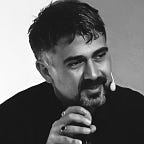When we talk about consciousness, we should mainly use the vocabulary of poetry.
The essence of consciousness is one of the most captivating and elusive subjects. It’s a topic that has challenged philosophers, scientists, and thinkers throughout history. But perhaps, when we endeavor to grasp the very fabric of our consciousness, we are searching for the language of the soul, a language not constrained by scientific jargon or philosophical terminology but best expressed through the profound, the abstract, and the metaphorical — a language embodied by poetry.
In poetry, consciousness is akin to a ghostly presence, something we feel but never quite grasp. It is not only the subject matter but also the vehicle through which we can navigate the ethereal landscapes of our minds. When a poet writes for example about the dance of shadows at dusk, they’re not merely describing a physical event but also alluding to the elusive thoughts and feelings that flutter at the edge of awareness, just beyond the reach of conventional language.
When we discuss consciousness, we should not limit ourselves to the constraints of conventional discourse. Poetry offers a realm where the unspeakable is spoken, and the indescribable is described. Through the poetic discourse of consciousness, we can embrace the enigmatic and revel in the beauty of the unanswered questions that make our existence all the more profound. It is the poet’s craft to bring us closer to the ever-elusive heart of our consciousness.
Murat
